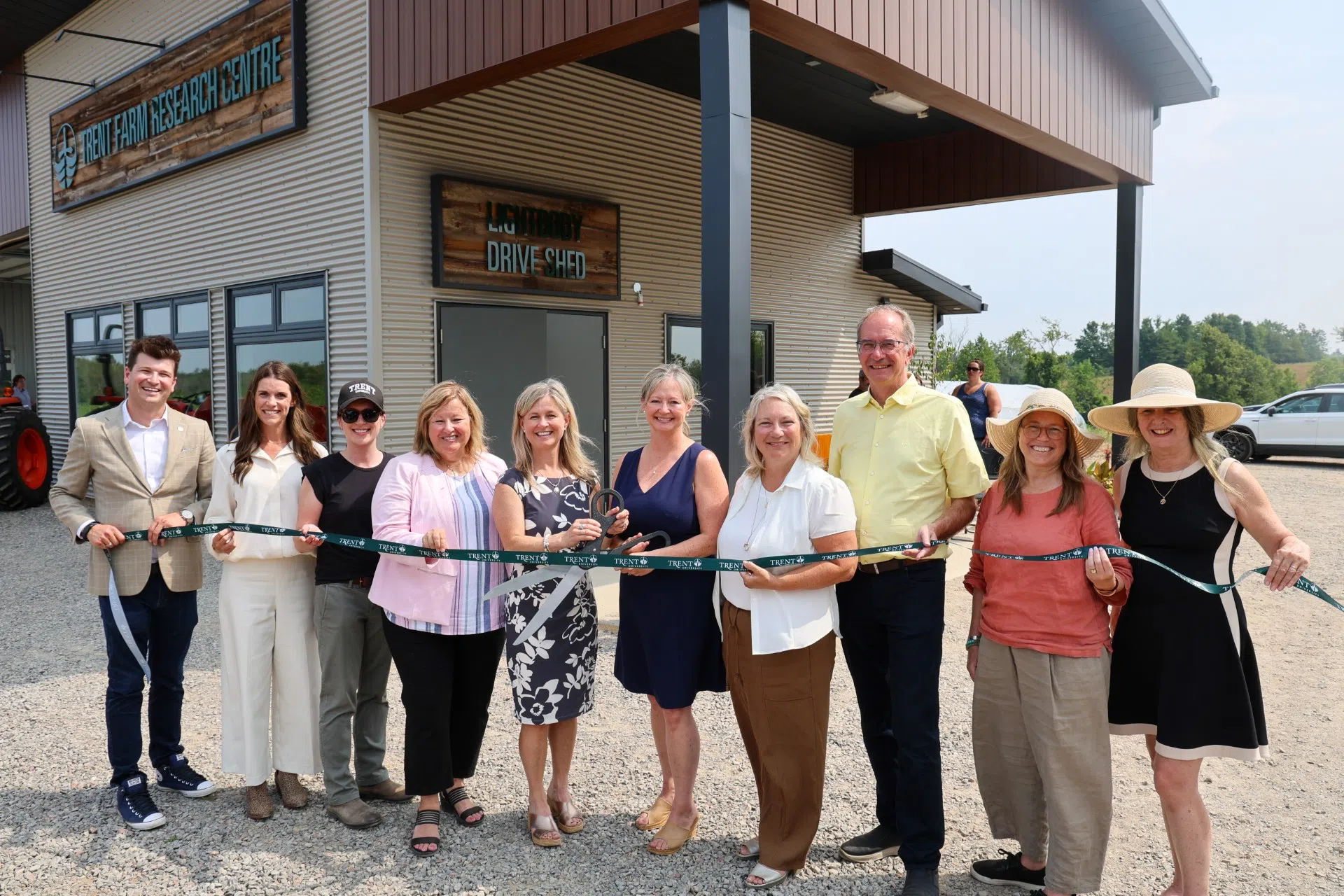socastcmsRssStartFreq 90.5/Oldies 96.7 News staffsocastcmsRssEnd

Trent University has officially opened the Lightbody Drive Shed, the first building at its Farm Research Centre, marking a major step forward in agricultural research and training.
“This new facility builds on more than a decade of research and hands-on learning in sustainable agriculture at Trent,” said Dr. Cathy Bruce, president and vice-chancellor of Trent University. “With the development of this tremendous land asset and the support of generous donors through our Momentous Campaign, we are entering a new phase in sustainability research and innovation – positioning Trent to lead in adaptive agriculture practices, soil science, and new carbon capture techniques. It is so exciting to grow the Farm in order to provide students with concrete farming and research experiences and to create a living lab for faculty. Outreach in the region, and beyond, will also feature large in the growing Trent Farm work ahead.”
Named in honour of the late Bob and Margie Lightbody, the drive shed provides workspace and storage for faculty, students, and community collaborators conducting field-based research. The Lightbodys, both members of Trent’s founding class of 1964 and farmers themselves, made a legacy gift to support the facility.
The Farm aims to address pressing challenges in agriculture, including climate change, shifting growing conditions, and a looming generational shift, with 40 percent of Canadian farmers expected to retire within the next decade. The research centre focuses on soil health, regenerative practices, and sustainable food systems, offering regionally relevant insights for farmers and food producers.
“Having local, credible research centres like this means rural communities can access trusted, relevant insights close to home,” said Ontario’s Minister of Rural Affairs, Lisa Thompson. “The work being done here at Trent is helping to build resilient communities and strong rural economies, supporting important local jobs and the long-term future of the key sectors that rural communities rely on.”
Located on 60 acres of Trent’s Symons Campus in Peterborough, the Farm was designated an official research centre in 2024. It is part of the Trent School of the Environment and provides research opportunities and field training for students in programs such as Sustainable Agriculture & Food Systems, many of whom are first-generation farmers and agri-food professionals.
Current research projects include climate and weather monitoring with Environment and Climate Change Canada, natural fertilizer innovation with V6 Agronomy, soil carbon sequestration research with the Ontario Soil and Crop Improvement Association, no-till mulch and luffa production trials, and Indigenous food sovereignty initiatives developed with students and community partners.
“The Trent Farm Research Centre is a vital part of our students’ learning experience,” said Dr. Karen Thompson, director of the Farm and associate professor in the Trent School of the Environment. “Students learn by applying theory and ideas from the classroom here in the field, working directly with faculty, industry, and community collaborators to tackle important challenges to our local, regional, and global food security. The research and teaching conducted here at the Trent Farm is building the capacity of the next generation to lead in agriculture, food systems, and community development.”
The university’s newly approved master plan outlines a vision to grow the site into a world-class hub for applied agricultural research, Indigenous knowledge systems, regenerative practices, and community-connected innovation. Funding for the centre comes from donor contributions, research grants, and institutional investment.



